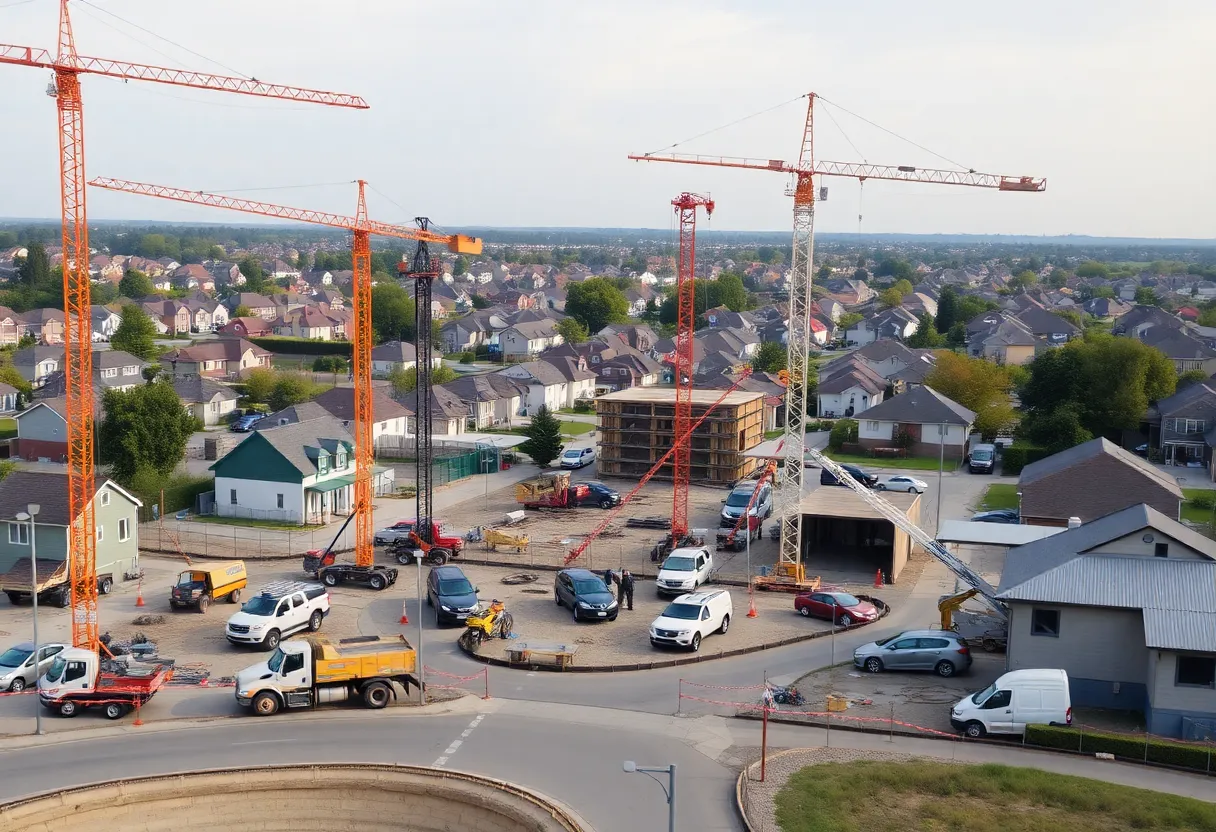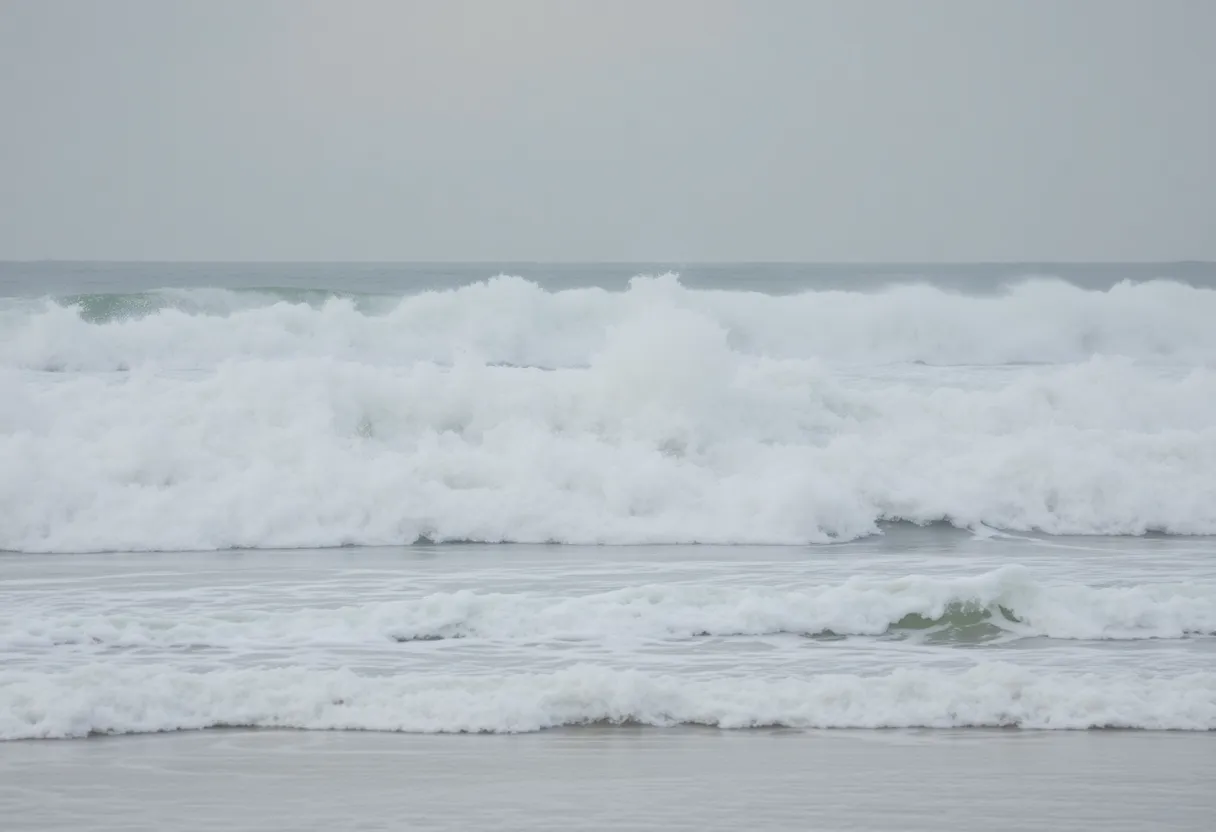California, August 31, 2025
News Summary
The U.S. Supreme Court has ruled that the Takings Clause applies to development impact fees, impacting a case involving a $23,420 traffic mitigation fee imposed by El Dorado County. This unanimous decision affects local jurisdictions relying on such fees to manage development-related infrastructure costs, clarifying that both legislative and agency fees must adhere to California’s Mitigation Fee Act and constitutional standards. The ruling could influence how impact fees are imposed across California.
California – The U.S. Supreme Court has ruled that the Takings Clause applies to development impact fees, affecting a high-profile case involving a $23,420 traffic mitigation fee imposed by El Dorado County on resident George Sheetz. The ruling, delivered on April 12, 2024, mandates that both legislative and agency-imposed fees must comply with California’s Mitigation Fee Act and cannot impose unconstitutional conditions on land-use permits.
The Supreme Court’s unanimous decision comes as a significant blow to local jurisdictions that have relied on such fees to manage infrastructure costs associated with new development. The ruling specifically addresses the legality of fees enacted through legislative action, countering the previous California appellate court decision affirming the fee’s constitutionality.
George Sheetz initiated the dispute nearly nine years ago when he sought a county permit to place a manufactured home on his rural property in El Dorado County. As part of the permitting process, county officials assessed a $23,420 fee, claiming it was necessary to mitigate the anticipated traffic impact on local roads and the nearby Highway 50. The fee was enacted through a general plan in 2004 and amended in 2006, establishing a precedent for similar charges in California.
After paying the mitigation fee under protest, Sheetz challenged its legality in court, arguing that it violated California’s Mitigation Fee Act, which requires that such fees bear a direct connection to the impacts of new developments. His suit was unsuccessful at the trial level, where the court ruled that legislation-imposed fees were exempt from scrutiny under the mitigation fee law.
In 2022, the California appellate court upheld the trial court’s ruling, affirming the legality of the fee. Sheetz’s legal team, undeterred, pursued the matter to the U.S. Supreme Court. The Supreme Court’s ruling stated that not only should legislative-imposed fees be subjected to constitutional scrutiny, but they must also prove that they serve a legitimate purpose without violating the principle of property rights.
The case has since returned to the California courts for further proceedings in line with the Supreme Court’s opinion. Recently, the California appellate court acknowledged the Supreme Court ruling but reaffirmed the $23,420 traffic mitigation fee, ruling it did not constitute an unconstitutional condition under the Fifth Amendment. The court justified this assertion by demonstrating a clear connection between the fee and the county’s objective to manage traffic congestion resulting from new developments.
In its analysis, the appellate court applied the Nollan/Dolan test, which examines whether the fees are proportionate to the necessary impact from the development. This ruling suggests that while impact fees must adhere to constitutional standards, they can be maintained if there is sufficient data supporting their necessity.
Critics of the fee, particularly from organizations like the Pacific Legal Foundation, have expressed concern that such charges may appear to be an exorbitant ransom for permission to build. Nonetheless, the ruling indicates that development impact fees can survive constitutional scrutiny while still promoting essential infrastructure funding.
The implications of Sheetz’s case could reshape how jurisdictions across California interpret and impose impact fees, as stakeholders are urged to stay vigilant regarding upcoming legal assessments in this arena.
FAQ Section
What is the significance of the U.S. Supreme Court ruling on development impact fees?
The ruling clarifies that both legislatively and agency-imposed development impact fees must adhere to constitutional requirements, particularly relating to property rights.
Who is George Sheetz?
George Sheetz is a resident of El Dorado County who challenged a $23,420 traffic mitigation fee required for his permit to place a manufactured home on his property.
What was the original fee imposed by El Dorado County?
The county imposed a fee of $23,420 to mitigate the anticipated traffic impacts of Sheetz’s home on local roads and Highway 50.
What are the Nollan/Dolan tests?
The Nollan and Dolan tests are legal standards used to determine whether a development fee imposed by a local government is proportionate to the impact of the development.
What are the broader implications of this ruling for other jurisdictions in California?
This ruling may influence the legality of impact fees in other California jurisdictions and compel them to reassess their fee structures in light of constitutional scrutiny.
Key Features of the U.S. Supreme Court Ruling
| Feature | Description |
|---|---|
| Case Involved | Traffic mitigation fee dispute between George Sheetz and El Dorado County |
| Ruling Date | April 12, 2024 |
| Supreme Court Decision | Unanimous ruling stating Takings Clause applies to legislative fees |
| Legal Precedent | Clarifies the constitutionality of development impact fees |
| Impact on Local Jurisdictions | May require reassessment of existing development fees and practices |
Deeper Dive: News & Info About This Topic
- JD Supra: Sheetz and Takings Law Revisited
- Public CEO: Court of Appeal Upholds Traffic Impact Fee Post-Sheetz
- Tahoe Daily Tribune: El Dorado County Transportation Impact Fee Analysis
- CBS News: El Dorado Co Man Wins Against the Supreme Court
- Wikipedia: Takings Clause

Author: STAFF HERE HUNTINGTON BEACH
The Huntington Beach Staff Writer represents the experienced team at HEREHuntingtonBeach.com, your go-to source for actionable local news and information in Huntington Beach, Orange County, and beyond. Specializing in "news you can use," we cover essential topics like product reviews for personal and business needs, local business directories, politics, real estate trends, neighborhood insights, and state news affecting the area—with deep expertise drawn from years of dedicated reporting and strong community input, including local press releases and business updates. We deliver top reporting on high-value events such as the Huntington Beach Surf City USA Marathon, the U.S. Open of Surfing, Fourth of July celebrations at the Huntington Beach Pier, and community festivals at Huntington Beach Central Park. Our coverage extends to key organizations like the Huntington Beach Chamber of Commerce and Visit Huntington Beach, plus leading businesses in retail, hospitality, and outdoor recreation that drive the local economy. As part of the broader HERE network, including HEREAnaheim.com, HERECostaMesa.com, HERESantaAna.com, and HERELosAngeles.com, we provide comprehensive, credible insights into Southern California's dynamic landscape.





